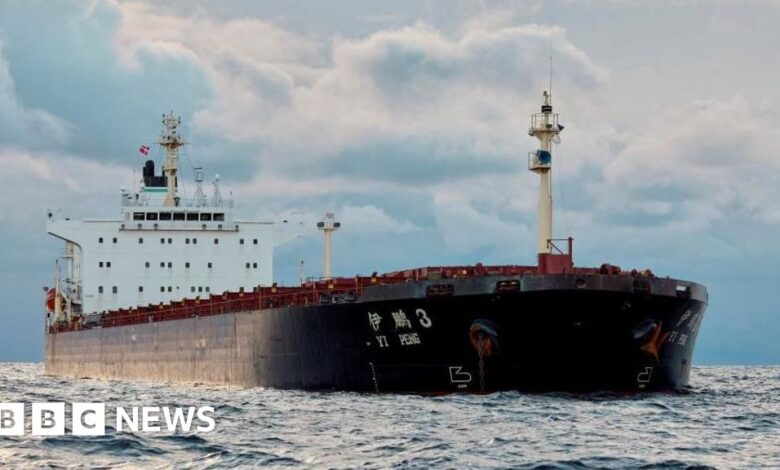Sweden asked China to cooperate in investigating the cable break

Sweden has officially asked China to cooperate in investigating the damage to two cables in the Baltic Sea after a Chinese ship was involved in the incident.
The cables – one connecting Sweden with Lithuania and the other between Finland and Germany – were damaged in Swedish territorial waters in the Baltic Sea on 17 and 18 November.
A Chinese vessel, the Yi Peng Three, is believed to have been in the area at the time and has since been anchored in international waters off the coast of Denmark.
Beijing has denied any involvement in the sabotage and said on Friday it was ready to cooperate with Sweden and other countries to find out what happened.
The Yi Peng Three left the Russian port of Ust-Luga, west of St Petersburg, on November 15.
Early on the morning of November 17, the Arelion cable connecting the Swedish island of Gotland and Lithuania was damaged.
The next day, the C-Lion 1 cable line between the Finnish capital of Helsinki and the German port of Rostock was cut off.
Data from ship tracking websites showed that the Yi Peng Three passed through the cables around the time each cable was cut.
According to the Wall Street Journal, Investigators suspect the ship intentionally damaged the cable by dropping and dragging the anchor along the seabed more than 160km (100 miles).
The ship has been in the Kattegat Strait – the route between Sweden and Denmark connecting the Baltic Sea to the North Sea – since November 19 and is being monitored by the Danish navy.
On Thursday, Swedish Prime Minister Ulf Kristersson told a news conference that his government had “sent an official request to China to cooperate with Swedish authorities to clarify what happened”.
“We think it’s extremely important to find out exactly what happened and, of course, we hope China will also comply with the request we sent,” he said.
He also reiterated his earlier request for the ship to return to Swedish waters so that it could be searched as part of the investigation, although added that he was not making any “allegations” any.
In response on Friday, China’s Foreign Ministry said it was “ready to cooperate with relevant countries to find out the truth.”
Spokesman Mao Ning said: “Currently China and Sweden maintain close communication on this issue.”
The period since Russia’s full-scale attack on Ukraine in February 2022 has seen rising tensions in the Baltic Sea and several incidents involving damage to undersea infrastructure.
September 2022, series of explosions blow through two Northern streams gas pipeline between Western Europe and Russia, and in October 2023 damage occurred to undersea telecommunications cable between Estonia and Sweden.
Speaking last week, German Defense Minister Boris Pistorius said of the latest incident that “no one believes that these cables were accidentally cut”, although he did not specify who was responsible.
Russia has dismissed suggestions that they might be involved as “absurd” and “laughable”.




